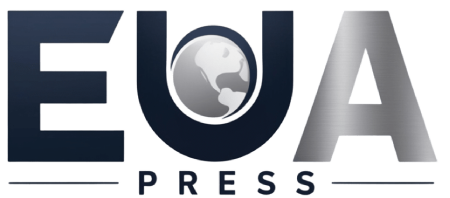Recent organizational changes in a key U.S. federal agency have stirred concerns beyond traditional diplomacy, potentially affecting the global standing of American businesses. When a significant number of employees were dismissed, the focus was mainly on the implications for foreign relations. However, these layoffs have also led to the dismantling of a specialized team that provided critical guidance to U.S. companies navigating complex international standards and laws. This shift may undermine the ability of these companies to remain competitive in increasingly regulated global markets.
The eliminated team specialized in advising businesses on how to avoid involvement in human rights violations—a responsibility that has gained increasing attention worldwide. Over the past decades, international norms have expanded to hold corporations accountable for the social and ethical impact of their operations, particularly concerning human rights. With regulations tightening globally, companies are expected to conduct due diligence and publicly disclose their human rights impacts, ensuring that their supply chains and operations do not contribute to abuses such as forced labor or support for oppressive regimes.
In recent years, major economies have introduced laws requiring businesses to identify, prevent, and address human rights risks. These laws are shaping the global marketplace and forcing companies to adopt rigorous compliance frameworks. The European Union’s upcoming regulations, which will come into effect soon, exemplify this trend, imposing wide-ranging obligations on multinational corporations. Companies that fail to meet these new standards risk losing access to significant markets and face reputational damage that could jeopardize their competitive edge.
While U.S. corporations are subject to these international rules when operating abroad, the domestic response has been less coordinated. The dissolution of the government office that previously helped businesses understand and implement these evolving standards leaves American companies without crucial support. This loss of expertise can put them at a disadvantage compared to foreign competitors that benefit from their governments’ more proactive stances on human rights compliance and corporate responsibility.
Beyond regulations, there is growing pressure from consumers and investors demanding ethical business practices. Investors are increasingly allocating funds toward companies with strong environmental, social, and governance records. This shift reflects a broader market trend that values transparency, accountability, and respect for human rights. As a result, companies that can demonstrate compliance and leadership in these areas stand to gain market trust and capital, whereas those lagging may struggle to attract investment and consumer loyalty.
Given these global shifts, government support in the form of expertise and clear policy guidance has become crucial for American companies aiming to thrive internationally. Without dedicated resources to help navigate complex international frameworks, U.S. businesses face greater risks of non-compliance and missed opportunities. Maintaining competitiveness means not only meeting legal requirements but also anticipating and adapting to market expectations shaped by ethical considerations and human rights awareness.
Historically, government agencies played a pivotal role in coordinating international efforts and providing businesses with the tools to meet global standards. The recent restructuring represents a step backward in this regard, potentially weakening the U.S. position in the global economy. Ensuring that businesses have access to expertise on human rights and international compliance is essential for sustaining long-term competitiveness and fostering responsible corporate conduct.
In conclusion, the evolving landscape of global business regulations and ethical expectations requires robust government support to empower U.S. companies. The removal of key institutional knowledge and advisory teams threatens to leave American businesses vulnerable in a marketplace that increasingly values responsibility alongside profitability. Addressing this gap will be crucial for securing a strong and competitive position in the interconnected world economy of the future.
Author: Bergezin Vuc







